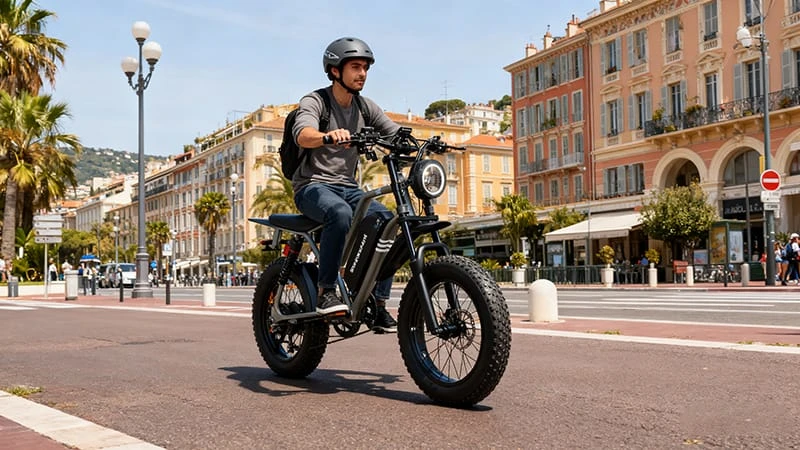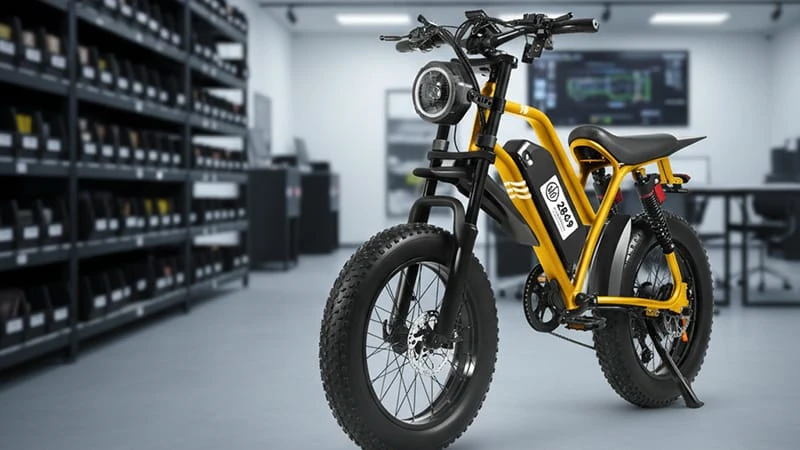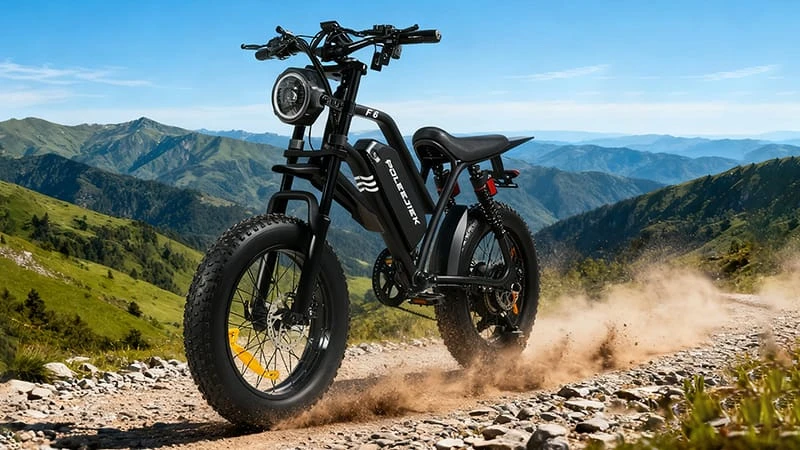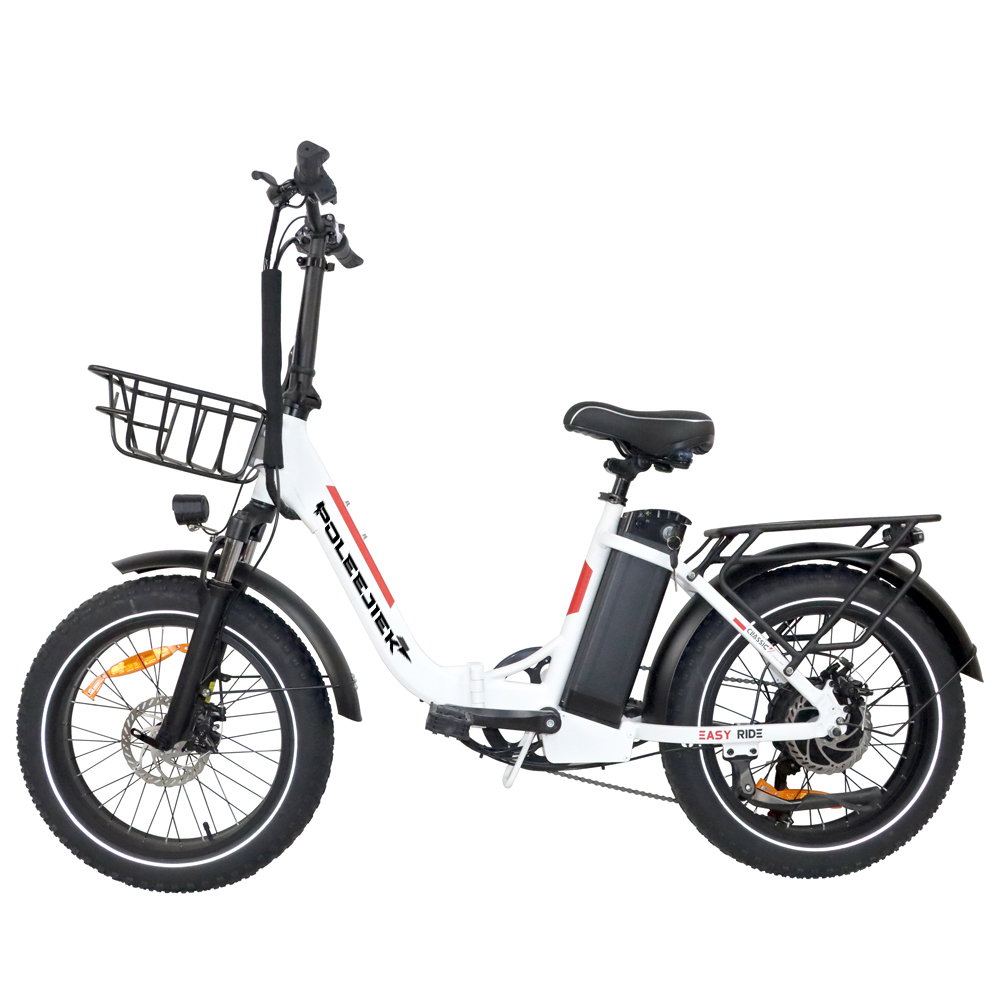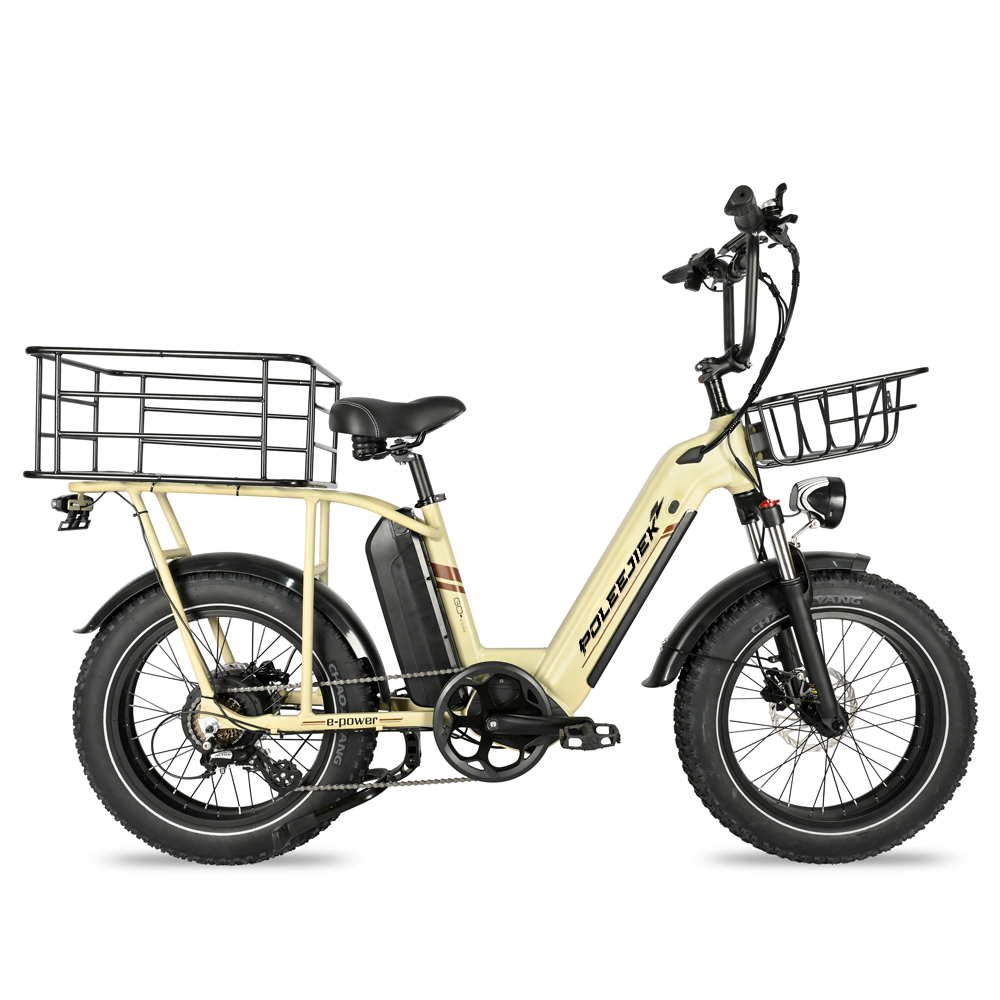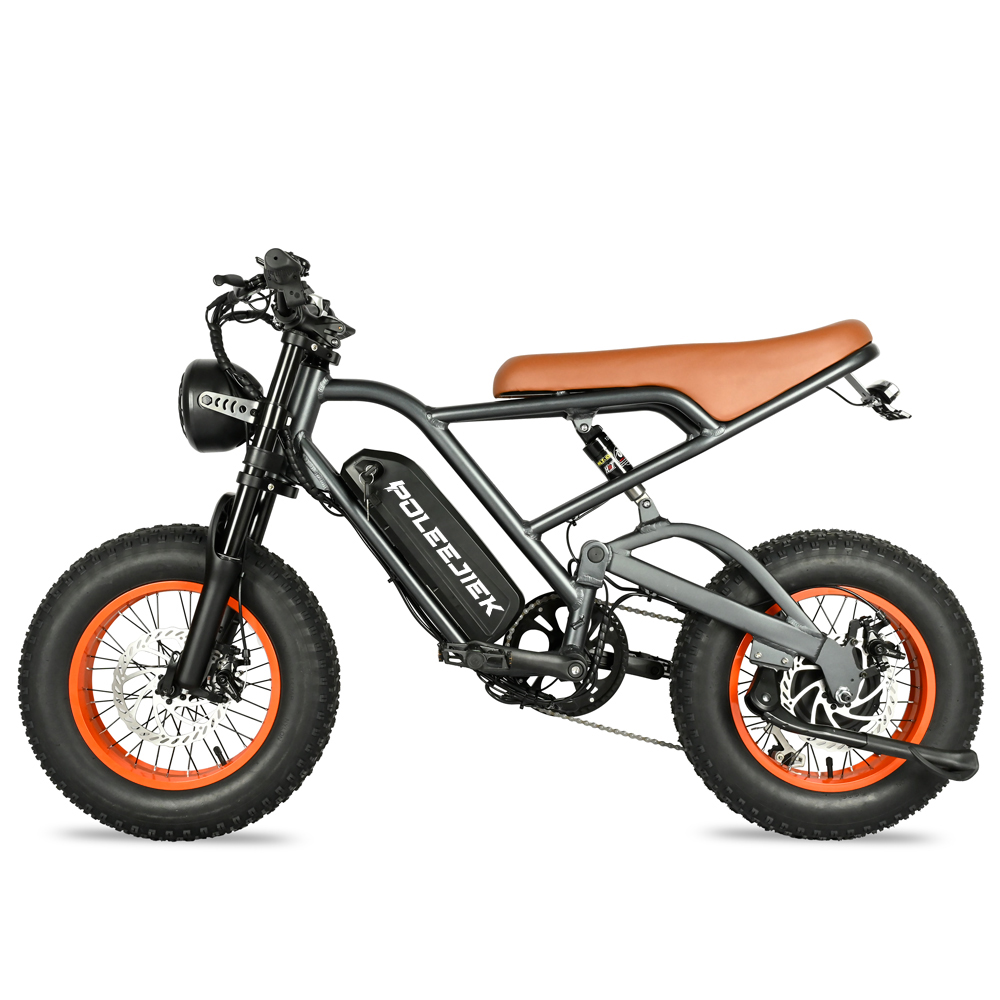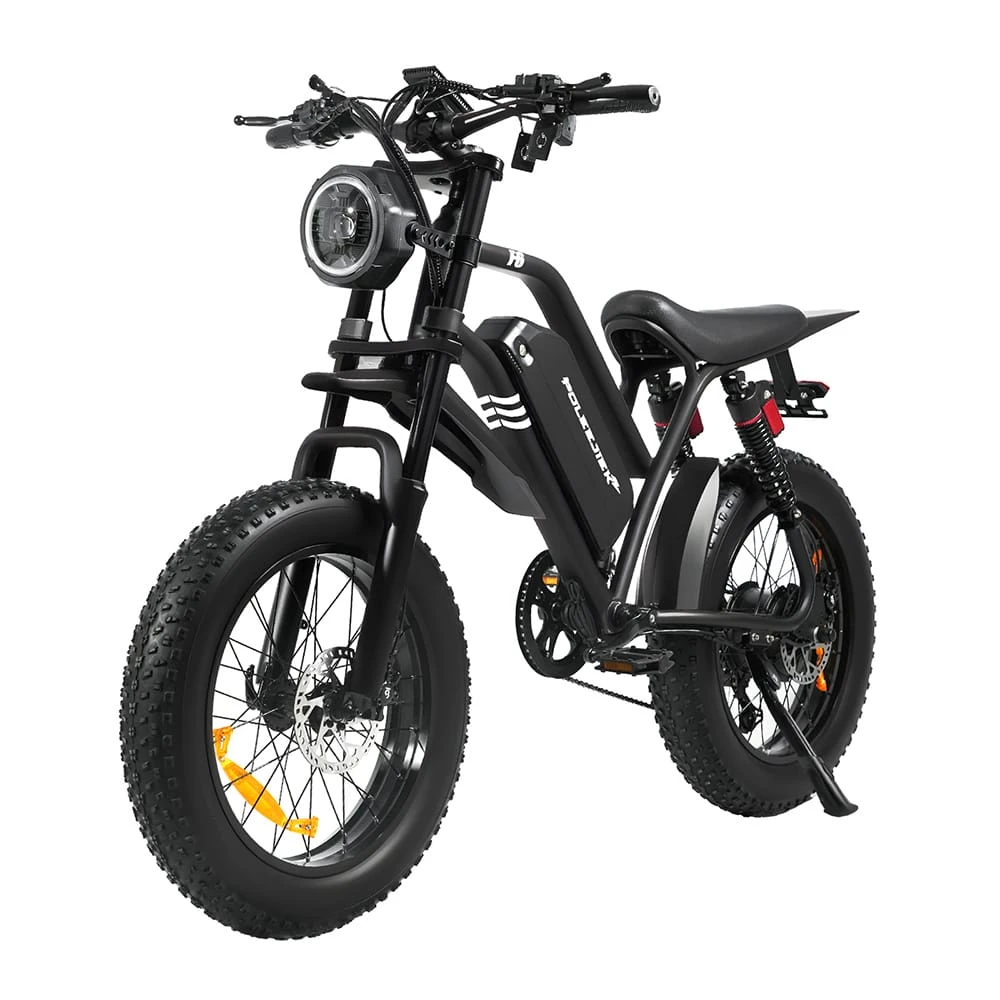The "Cheap Ebike" Trap: Why Cheap Electric Dirt Bikes and Discounted Electric Bikes Are Destroying B2B Dealer Profits
As a B2B dealer, integrator, or distributor, you live and breathe B2C search behavior. You see the trends. Customers are flocking to Google, typing in best electric bikes under 1000 and cheap electric dirt bike. This should be your single greatest opportunity. Your showrooms should be full, your service bays booked, and your profit margins healthy.
But for many, that's not the reality.
The reality is that your biggest and most ruthless competitor isn't the shop across town. It's your own supplier.
This is the B2B dealer's number-one nightmare: B2B channel conflict . It’s the sinking feeling you get when a customer test-rides a bike in your store, thanks you for your expertise, and then buys it online—from the manufacturer's own website—for less than your wholesale cost.
When your supplier runs a flash sale on Amazon or their own site, offering discounted electric bikes that directly undercut your stocked inventory, your entire business model is threatened. Your investment in showroom space, technical training, and local marketing is instantly devalued.
This guide is Poleejiek's definitive stance on this "suicidal" Direct-to-Consumer (DTC) price war. We are pulling back the curtain on the "cheap" ebike market to show you the hidden costs. More importantly, we will demonstrate why Poleejiek's "Dealer-First" model is designed from the ground up to protect your business, your ebike profit margin, and your partnership with us.
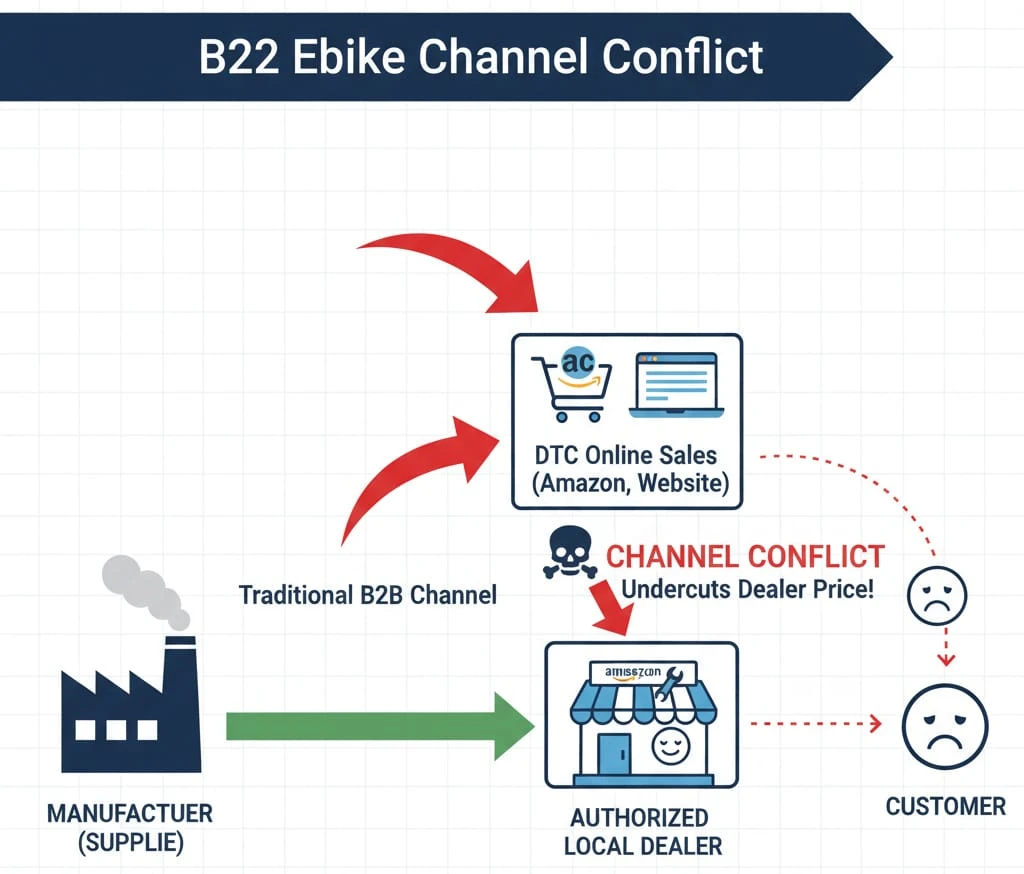
The Rise of the DTC Price War: A Market Model Analysis
We must be clear: we have respect for the brands that pioneered the Direct-to-Consumer (DTC) ebike model. They identified a market, built incredible logistics, and offered B2C customers revolutionary pricing. Keywords like rad ebike (as a representative of the Rad Power Bikes model) became synonymous with this disruption, proving that you could ship a bike in a box and find a massive, willing audience.
The B2B Reality of the DTC Model
However, as a B2B partner, you must understand the genetic code of this model. The DTC model is, by its very nature, fundamentally hostile to a B2B dealer network.
Its primary directive is to remove the middleman. In this equation, you are the middleman.
This model has trained B2C customers to hunt for the lowest possible price online, creating a market frenzy for terms like electric bike under $600. It has anchored the customer's perception of "value" to the lowest possible price tag, completely bypassing the actual value you provide:
- Expert Assembly: You don't just hand over a box. You build, tune, and safety-check the bike.
- Test Rides: You provide the tangible, "hands-on" experience that no website can replicate.
- After-Sales Service: You are the local face for warranties, repairs, and upgrades—the most critical part of the ownership experience.
- Community: You are a local hub for riders, fostering a community that builds long-term brand loyalty.
The Dealer's Dilemma: The "Unpaid Showroom"
The DTC model exploits this. It turns your expensive showroom into a free "demo center" for its own online store. A customer comes in, tries your floor models, asks your staff technical questions for an hour, and then leaves. They walk out, pull out their phone, and buy from the DTC brand's website because it's "$100 cheaper" and has "free shipping."
You are left with the labor costs, the rent, the insurance, and zero percent of the sale. This is the unsustainable dilemma that the DTC price war creates, and it's a war you can't win if your own supplier is providing the ammunition to your competition.
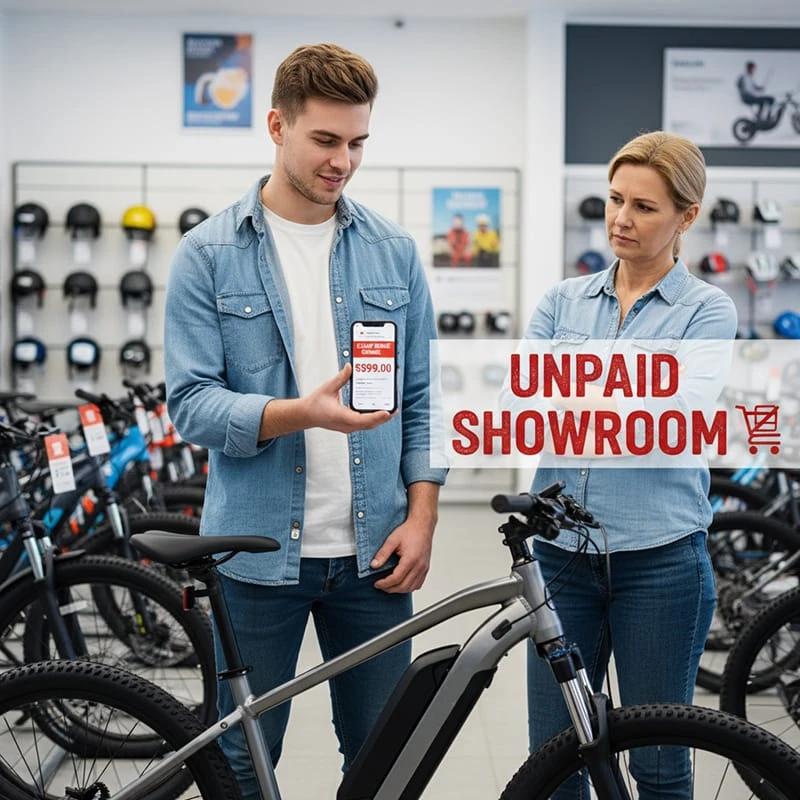
Poleejiek's "Dealer Protection" Promise: Our B2B Solution
At Poleejiek, we reject this premise. We do not believe that DTC is the only—or even the best—model for a sustainable, long-term industry.
Our philosophy is simple: Our success is indivisible from your success.
We believe in the power of local expertise. We believe in the tangible value of a test ride, professional assembly, and a handshake from a service tech you trust. Our entire B2B framework is built on three core promises designed to eliminate channel conflict and protect your profits.
1. Ironclad, Enforced MAP Policy
The single most important tool for market stability is a strictly enforced Minimum Advertised Price (MAP) policy
What this is: A MAP policy is an agreement that sets a "floor" for the price a product can be advertised online. Poleejiek establishes and enforces a MAP policy for all products in our catalog, from our entry-level commuters to our high-performance fat tire ebikes and cargo ebikes.
What this means for you:
- No "Race to the Bottom": You will never be forced into a price war with the dealer across town or a faceless Amazon seller. The advertised price is the advertised price, for everyone.
- We Obey It, Too: This is the most critical part. Poleejiek is also bound by our MAP policy. We will never use our own website to undercut you. The price a customer sees on our corporate site will be the same (or higher) than the price in your store.
- Profit Margin Protection: This policy ensures that when you sell a Poleejiek bike, you are earning the full, healthy ebike profit margin you deserve. It allows you to compete on service, not on pennies.
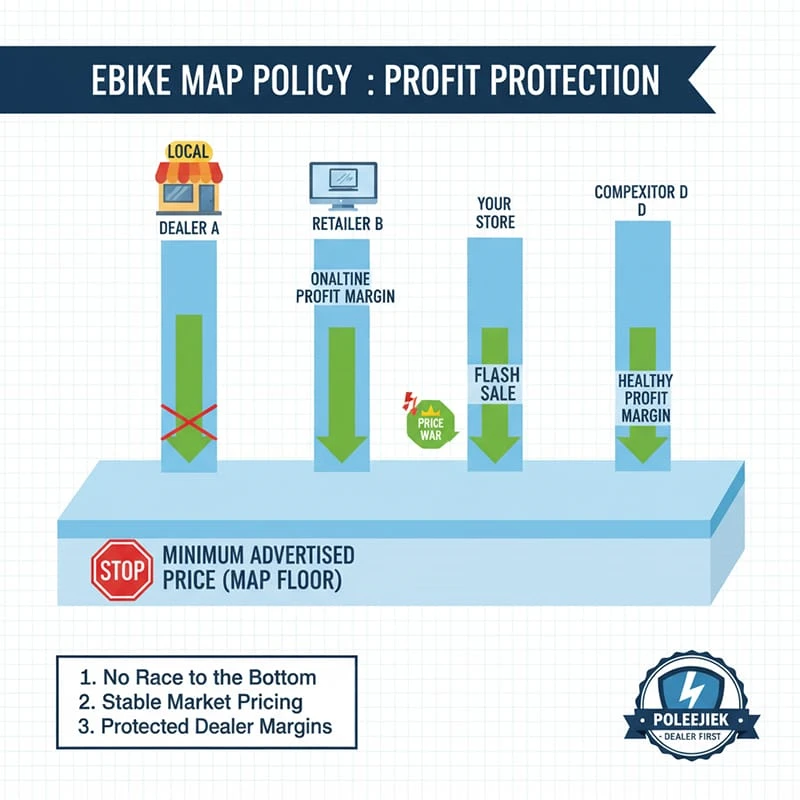
2. Zero B2B Channel Conflict: We Will Never "Backstab" Our Dealers
A MAP policy is only half the battle. The real poison is when a manufacturer bypasses the dealer network entirely with "DTC-only" sales or by dumping clearance stock on third-party marketplaces.
Poleejiek's "No-Undercut" Guarantee:
- No Amazon Sales: You will not find Poleejiek running "clearance sales" for discounted electric bikes on Amazon, eBay, or any other third-party marketplace. We see this as a direct betrayal of our B2B partners, and we refuse to do it.
- Protected Wholesale Pricing: Our B2B wholesale pricing is always structured to provide a healthy, sustainable retail margin. We don't play games with complex rebate structures or volume-based pricing designed to favor massive online-only "box-shifters."
- Inventory & End-of-Life (EOL) Honesty: When a product is reaching its end-of-life, we don't dump it on our website in a "fire sale" that instantly makes your floor stock worthless. We coordinate with our dealer network, offering buy-backs or structured, channel-wide promotions so that everyone can clear inventory profitably and prepare for the new models together.
3. Online Leads for Your Offline Store
We run a robust digital marketing operation at Poleejiek. Our website, receives significant B2C visitor traffic from customers deep in the research phase.
Our competitors see this traffic as their own DTC sales funnel to poach. We see it as a lead-generation tool for you.
Our website prominently features a "Find a Local Dealer" tool. When a B2C customer in your area is browsing our bikes, we don't push them to an "Add to Cart" button. We actively push them, with their location and product interest, to your storefront.
We are not in the business of competing with you. We are in the business of sending you qualified, high-intent customers.
How to Sell "Value," Not "Cheap" (And Win Against the Cheap Electric Dirt Bike Mentality)
This protected B2B ecosystem gives you the stability and margin to do what you do best: sell.
But you still have to overcome the B2C customer's obsession with the "cheap" price tag. When a customer walks in and says, "I can get a cheap electric dirt bike online for $599. Why is yours $900?"—you need the right tools to respond.
Here is the Poleejiek framework for shifting the conversation from "Price" to "Cost."
Redefine "Cheap"
First, you must help the customer understand what "cheap" really means.
That electric bike under $600 is not a "bike"; it's a "bike-in-a-box." It's a collection of parts with no support. It comes with:
- Zero Assembly: The customer (or an unqualified friend) is responsible for assembling the brakes, derailleurs, and electrical system. This is a massive safety and performance liability.
- Zero After-Sales Service: When that bike breaks—and it will—who do they call? A 1-800 number? A support email in a different time zone?
- Zero QC (Quality Control): These "cheap" bikes are built to hit a price point, not a quality standard. They use no-name batteries, uncertified controllers, and weak frames.
Your script: "That $600 bike looks cheap, but the moment it breaks, it's not a bike. It's 50 pounds of expensive, hazardous e-waste in your garage. It has no support, no local parts, and no one to service it. It's not cheap; it's disposable."
Sell "Total Cost of Ownership" (TCO)
Now, pivot to "Value." A Poleejiek budget electric bike (our entry-level model) might have a $900 price tag, but that $900 includes value that the $600 bike ignores.
This is the power of selling Total Cost of Ownership (TCO). Show them the math.
TCO Comparison: "Cheap" Bike vs. Poleejiek "Value" Bike (2-Year Ownership)
| Cost Factor | The "$600" Online Bike | The "$900" Poleejiek Value Bike |
|---|---|---|
| Initial Price | $600 | $900 |
| Professional Assembly | $100 - $150 (If you can find a shop willing to build it) | Included |
| 30-Day First Tune-Up | $75 | Included |
| First-Year Repairs (Common on cheap components) | ~$150 (Generic parts, high labor) | $0 (Covered by Poleejiek Warranty) |
| Local Service & Support | Not Available | Included (Peace of Mind) |
| 2-Year Battery Health | Degraded (No support, no warranty) | Supported by Poleejiek's QC & Warranty |
| True 2-Year Cost | ~$925+ (and constant frustration) | $900 (and a great experience) |
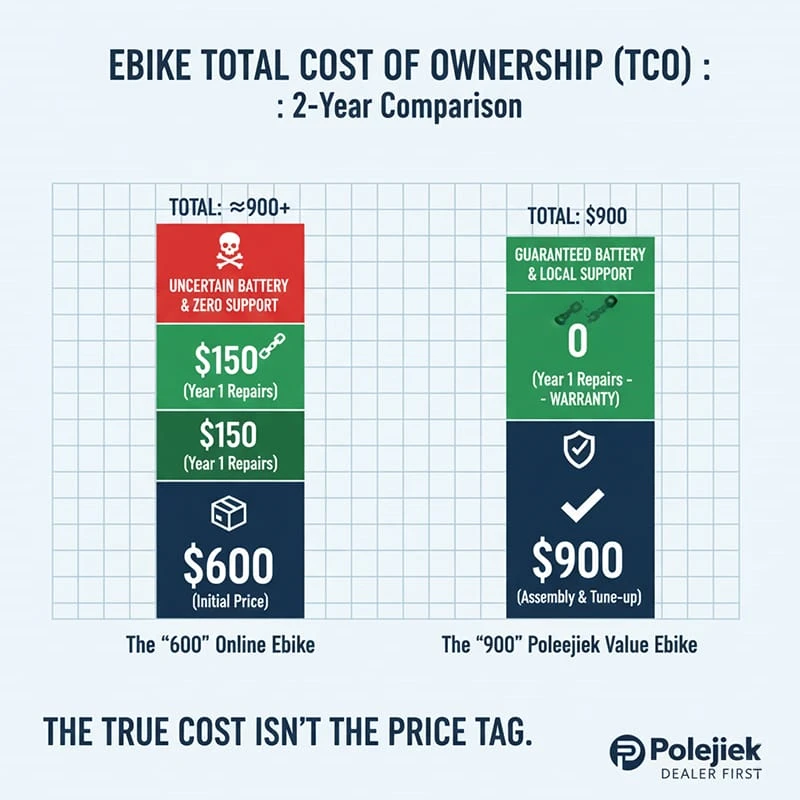
When you frame it this way, the "cheap" bike is exposed. It's not cheaper. It's a trap. The $900 Poleejiek bike, which includes your professional assembly, your local service, and our parts guarantee, is demonstrably the better and safer financial investment.
You're not just selling a bike; you're selling a functioning, supported, and safe transportation solution. That is a value proposition a DTC box-shifter can never compete with.
Conclusion: Choose Your Partner, Not Just Your Product
In 2025, the choice for B2B ebike dealers, distributors, and integrators is stark.
Option A: You can partner with a DTC-focused brand as a supplier. You can spend your days fighting a losing price war against your own supplier's website, devaluing your service, and acting as their unpaid showroom while your ebike profit margins evaporate.
Option B: You can partner with Poleejiek. You can join a protected, partner-first B2B network where your investment is valued. You can operate with the confidence that your supplier is an ally, not a competitor. You can leverage our strict MAP policy, zero-conflict guarantee, and lead-generation tools to build a profitable, sustainable business.
Poleejiek is committed to defending the B2B channel. We are committed to defending your profit.
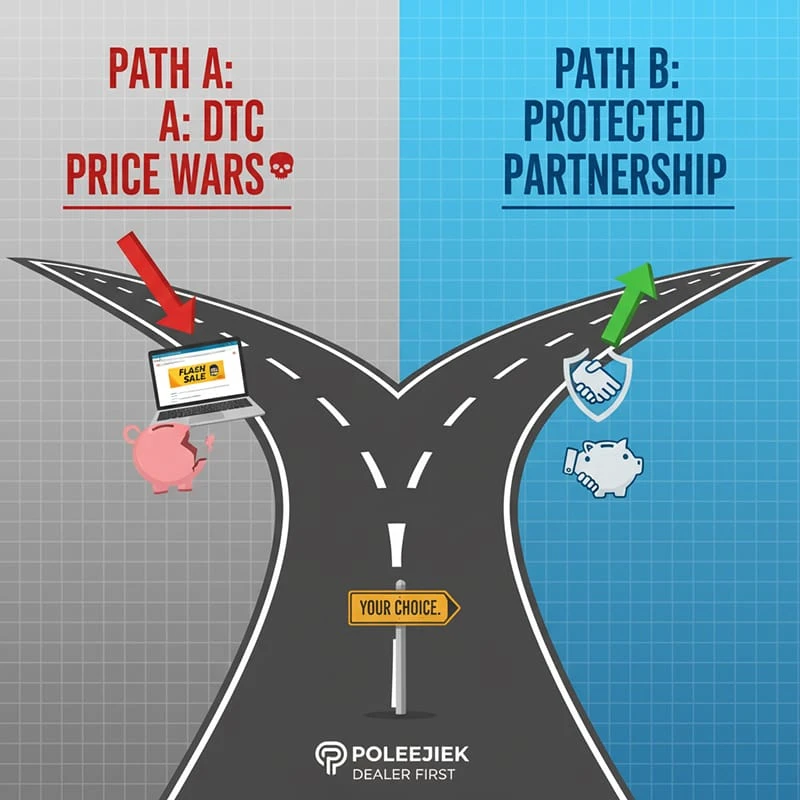
Are you tired of competing with your own supplier?
Apply to become a Poleejiek authorized dealer today. Join our protected, high-profit B2B network and let's win back the market together.
Apply for the Poleejiek Dealer Program


